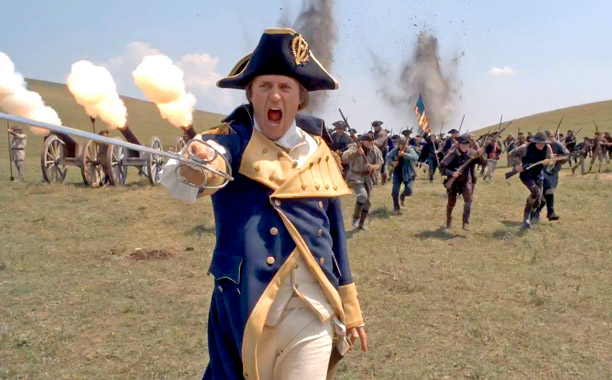Doris Kearns Goodwin had been working her way through the presidents.
Her books had traced the lives of Kennedy, Johnson, Lincoln, Taft and two Roosevelts. They had brought her fame, a Pulitzer Prize and a couple of drinking sessions with Daniel Day Lewis.
What was missing was the first and best-known president. Now she’s produced “Washington” (shown here), the mini-series airing Sunday, Monday (yes, Presidents Day) and Tuesday on the History Channel.
“History called us to ask if we were interested,” said Beth Laski, Goodwin’s manager. The notion of a mini-series seemed inviting because:
– Another mega-book would take too much time. One of her books took 10 years, Goodwin said; and a book about wartime Franklin Roosevelt “took longer than World War II did.” She’s 77 and might consider a quicker book, but she’s not ready to commit a decade.
– Unlike some authors, she has good feelings about movies. “My husband had a good experience with it,” she said. “And I did with ‘Lincoln.’”
Richard Goodwin (her husband for 33 years, until his death in 2018) wrote the book that was the basis of “Quiz Show”; she wrote the one that was the basis of “Lincoln.” Both ended up with great directors (Robert Redford and Steven Spielberg, respectively); both drew best-picture Academy Award nominations and Lewis won an Oscar as Lincoln.
Besides, this was a rare chance to view the young Washington. “You don’t think of him as a young man,” she said.
He was very young – a colonial major at 21, a colonel at 24 – and very confident. “I had four bullets through my coat and two horses shot under me,” he once wrote, “yet escaped unhurt.”
Tall and strong, he was willing to charge into battle … and into controversy. At one point, he boomed into the military leader’s office, to disagree with a policy. “It’s like a platoon leader going to the head of the Joint Chiefs of Staff,” Goodwin said.
That brashness led to mistakes. One – attacking what might have been a peaceful group – may have ignited the Frenchand Indian War. Another time, Washington was forced to surrender; he soon wrote an account that made it sound like a victory.
Yes, Goodwin said, George Washington could tell a lie. “It was a whopper, but he learned the importance of telling the truth.”
After his early adventures, he settled into the task of becoming rich. Already owning an estate, he married a widow who had more land, plus money and 86 slaves. But as the revolution brewed, Goodwin said, Washington hinted that he was ready to take a role. “Showing up (at the Continental Congress) in full military uniform was certainly one sign.”
Washington was named commander and soon learned how difficult this would be. “The unruliness of the soldiers was a real problem for him.”
Some simply left; others had short enlistments, she said. “You had to build over and over.”
Indeed, one reason for crossing the Delaware at Christmastime, she said, was basic: Many of the enlistments would soon be done; he needed something positive to keep his men.
Washington dealt with such problems skillfully, Goodwin said. He was capable of listening to – and sometimes heeding – advice. The once-brash young man improved with age. “He was the only founding father who, in his will, freed his slaves.”
He was a towering figure – worthy, perhaps, of a holiday or a documentary mini-series.
– “Washington,” History Channel.
– 8 p.m. Sunday (Feb. 16), rerunning at 10, midnight and 2 a.m.
– Opener reruns at 6 p.m. Monday; second episode is 8 p.m., rerunning at 10:03 and just past midnight
– All three episodes are at 4, 6 and 8 p.m. Tuesday; the third one reruns at midnight
